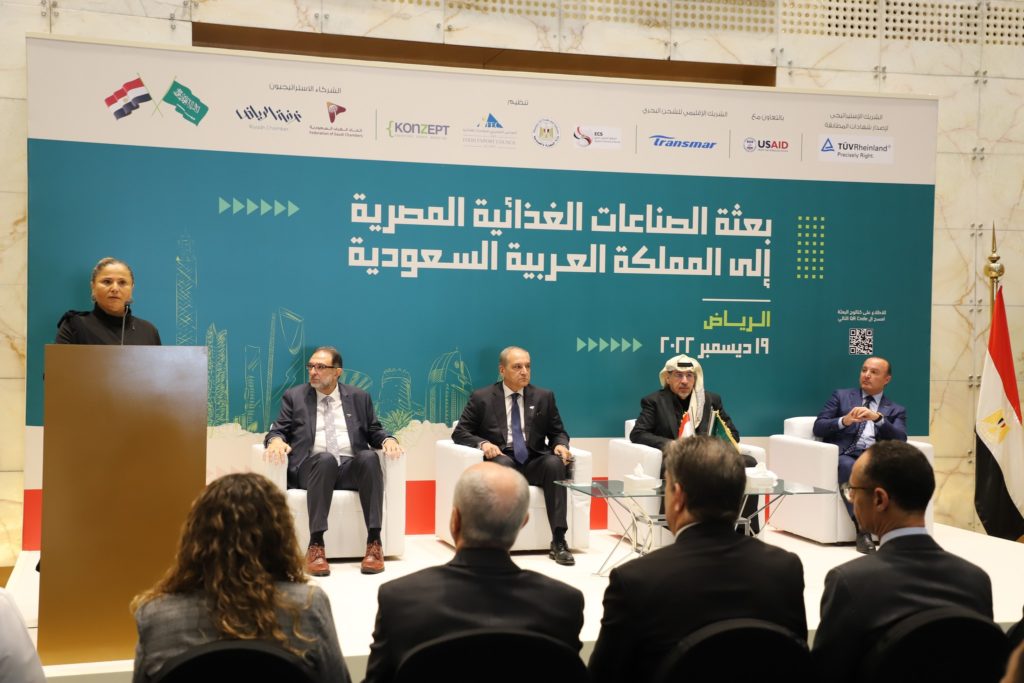Cairo – A group of 43 Egyptian food companies traveled this week to prospect new export opportunities in the Saudi Arabian market. The mission from Egypt passed through three cities, starting with the capital, Riyadh, on December 19, then heading to Jeddah, on the west coast, and, on the last day, to the holy city of Mecca, on December 22.
The initiative by the Food Export Council of Egypt (FEC) is the result of cooperation between the National Food Safety Authority (NFSA), the Council of Saudi Chambers of Commerce (CSC), the Riyadh Chamber of Commerce & Industry (RCCI), the Jeddah Chamber of Commerce & Industry (JCCI), the Makkah Chamber of Commerce & Industry and the Egypt Trade Reform and Development Project (TRADE), funded by the United States Agency for International Development (USAID).
The chairman of the FEC, Hani Berzi, said the mission aimed to enable Egyptian food products companies to export high-quality goods to the Saudi market, in addition to increasing trade cooperation. According to him, the Saudi market represents 7.5% of Egypt’s food exports, which totaled USD 4.1 billion in 2021. Berzi said the Egyptian trade representation in Saudi Arabia contributed to the coordination of the mission, in cooperation with the Saudi counterparts, which also helped to invite local importers.
He highlighted the commitment of the FEC to support neighboring countries concerned about the impact of the global crisis on the production and export of foodstuffs, which turned to Egypt as an alternative to international markets.
According to him, Egypt’s food exports represented 14% of non-oil revenue in the country. The sector sat in third place among the most exporting and achieved a 19% growth compared to 2020. Berzi also informed that Arab countries accounted for 54% of Egypt’s total exports, followed by the European Union, with 16%, non-Arab African nations, with 10%, and the United States, with 5%. The other countries together represented the remainder 15%.
The chairman underscored the importance of trade and promotion missions organized by the FEC. They aim to develop Egypt’s food industry exports, increase promotional activities, and support the Egyptian presence in different global markets, including Saudi Arabia and other Arab nations. Results of a study carried out by the council indicated the vital role played by trade missions.
The chairman of the NFSA, Tariq Al Hobi, said bilateral meetings are underway with the Saudi Food and Drug Authority (SFDA) to discuss cooperation to increase the number of Egyptian companies on the Saudi authority’s safelist. This will help increase the flow of foodstuffs produced in Egypt to Saudi Arabia, meeting the growing Saudi demand.
Translated by Georgette Merkhan & Elúsio Brasileiro




